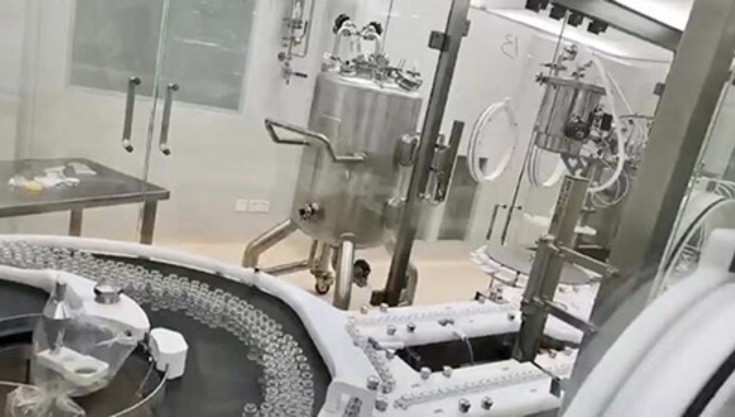Everest Medicines celebrates start of operations at new mRNA vaccine production facility

Officials from the Zhejiang provincial government, Jiaxing municipal government and Jiashan county government today attended an opening ceremony along with key members of Everest’s leadership team and other experts from the pharmaceutical and healthcare organizations.
Everest says the new mRNA manufacturing facility is a ‘key element’ in its strategic goal of establishing a full industrial value chain of research, clinical development, manufacturing and commercialization.
Trial production runs at the site have included those for the company’s mRNA bivalent COVID-19 booster; while Everest’s mRNA pipeline includes a rabies vaccine and infectious disease candidates in pre-clinical development.
Plant facilities
Covering an area of 58,000 square meters and with an investment of more than RMB 900 million ($130m), the site has a set of advanced production facilities built to meet global and China GMP standards.
Over the last two months, Everest has successfully completed multiple production runs of mRNA vaccines and reports that data generated from these trial runs has met expected parameters.
“Over the past few years, mRNA technology has attracted widespread attention due to the COVID-19 pandemic outbreak and surging demand for covid-related vaccines,” said Rogers Yongqing Luo, Chief Executive Officer of Everest Medicines.
“Thanks to its unique mechanism, mRNA technology has shown broad potential and clinical value in multiple disease prevention and treatment areas. We are proud to have established an advanced production facility within such a short time frame.
“We will continue to accelerate clinical development and be prepared for commercialization as quickly as possible to fulfil the demand for mRNA vaccines in China, Asia and globally.”
mRNA focus
mRNA technology platform is one of Everest’s key strategic focus areas as it evolves from an in-licensing model towards its ambitions to be a ‘fully integrated biopharma company and an Asia-based industry leader with a global footprint.’
In September 2021, Everest announced a strategic cooperation agreement with Providence Therapeutics Holdings to advance mRNA vaccines and therapies.
This includes a COVID-19 vaccine, second generation COVID-19 vaccine booster, rabies vaccine, and another pre-clinical infectious disease candidate.
Everest says the partnership has made significant progress, including the industrial scale technology transfer of its mRNA platform, localized processing and analytical testing, as well as direct procurement from raw material suppliers, which will enable the company to independently develop and produce mRNA vaccines and innovative drugs.
“By localizing this important and advanced mRNA technology platform, Everest will be well positioned for long-term growth,” continues the company.
Everest is developing an Omicron-based bivalent booster candidate, EVER-COVID19-M1.2, and plans to initiate clinical trials in China this year. In animal studies, EVER-COVID19-M1.2 showed a 50-fold increase in the level of neutralizing antibodies against BA.4 and BA.5 variants compared to EVER-COVID19-B, its mRNA vaccine candidate against the ancestral strain of the COVID-19 virus.
In December, the company achieved a preclinical proof-of-concept milestone for its mRNA rabies vaccine program. In a head-to-head immunogenicity comparison study with a commercial inactivated rabies vaccine, mice dosed with Everest’s vaccine produced higher levels of serum neutralizing antibodies than those of mice dosed with the comparator vaccine. Everest’s candidate also induced a significantly higher degree of T-cell-mediated immune response than the comparator vaccine.









